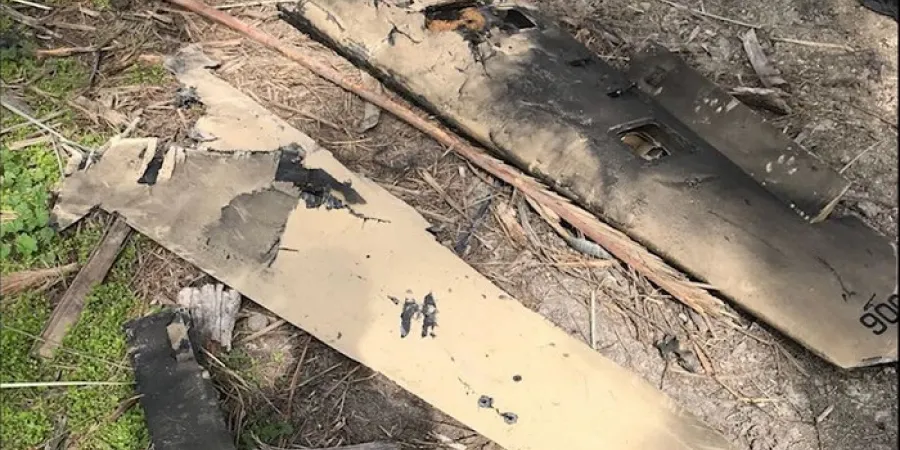ITIC: Iran is Not Interested in a Direct Confrontation with Israel
According to an assessment by the Meir Amit Intelligence and Terrorism Information Center, Iran "prefers to maintain a strategy of brinkmanship in its effort to achieve its goals"
Ami Rojkes Dombe
| 14/02/2018
Following the events of last Saturday, the Meir Amit Intelligence and Terrorism Information Center (ITIC) is assessing that Iran is not interested in a direct confrontation with Israel at this point.
"Precisely in light of these challenges, the Iranian UAV launch can be seen as another effort by Iran to position itself as a central player able to influence the new reality in Syria; to challenge Israel, which is attempting to block Iran’s direct influence and that of its proxies in Israel’s northern front; to change the rules of the game regarding IDF actions in Syria and the response such actions engender," the ICIT report reads. "However, in our assessment, Iran’s effort to play down its role in the events may indicate that it is not interested, at least currently, in a direct confrontation with Israel, and it prefers to maintain a strategy of brinkmanship in its effort to achieve its goals."
"The initial public statement from Iran with regards to these extraordinary security developments in Israel’s northern front reflect an Iranian effort to play down its role in the events; display a united front between Iran, Syria and Hezbollah vis-à-vis Israel; present the downing of the Israeli jet as a success of the 'Resistance Front' and as a change of the rules of the game regarding the continuation of Israeli violations of Syrian sovereignty."
The report also refers to a commentary published on the Mashregh News website, which claims that if the downing of the Israeli jet was carried out with Russian consent, this indicates that Israel’s political and military position has become more precarious and that Prime Minister Netanyahu’s visit to Moscow has failed. The coordination between Israel and Russia cannot provide Israel with sufficient security and the 'Resistance Axis' can shut Syria’s airspace to Israeli incursions, the article argued.
According to an assessment by the Meir Amit Intelligence and Terrorism Information Center, Iran "prefers to maintain a strategy of brinkmanship in its effort to achieve its goals"
Following the events of last Saturday, the Meir Amit Intelligence and Terrorism Information Center (ITIC) is assessing that Iran is not interested in a direct confrontation with Israel at this point.
"Precisely in light of these challenges, the Iranian UAV launch can be seen as another effort by Iran to position itself as a central player able to influence the new reality in Syria; to challenge Israel, which is attempting to block Iran’s direct influence and that of its proxies in Israel’s northern front; to change the rules of the game regarding IDF actions in Syria and the response such actions engender," the ICIT report reads. "However, in our assessment, Iran’s effort to play down its role in the events may indicate that it is not interested, at least currently, in a direct confrontation with Israel, and it prefers to maintain a strategy of brinkmanship in its effort to achieve its goals."
"The initial public statement from Iran with regards to these extraordinary security developments in Israel’s northern front reflect an Iranian effort to play down its role in the events; display a united front between Iran, Syria and Hezbollah vis-à-vis Israel; present the downing of the Israeli jet as a success of the 'Resistance Front' and as a change of the rules of the game regarding the continuation of Israeli violations of Syrian sovereignty."
The report also refers to a commentary published on the Mashregh News website, which claims that if the downing of the Israeli jet was carried out with Russian consent, this indicates that Israel’s political and military position has become more precarious and that Prime Minister Netanyahu’s visit to Moscow has failed. The coordination between Israel and Russia cannot provide Israel with sufficient security and the 'Resistance Axis' can shut Syria’s airspace to Israeli incursions, the article argued.



